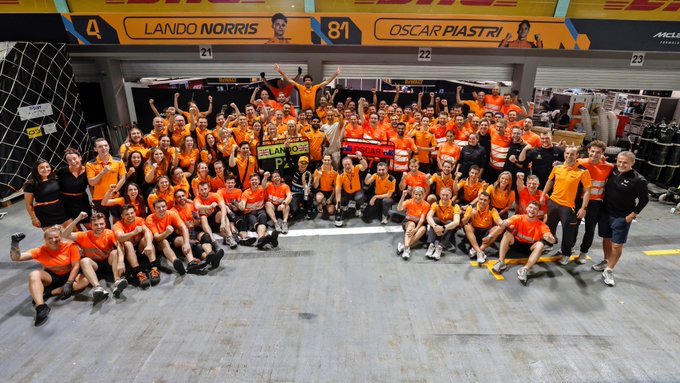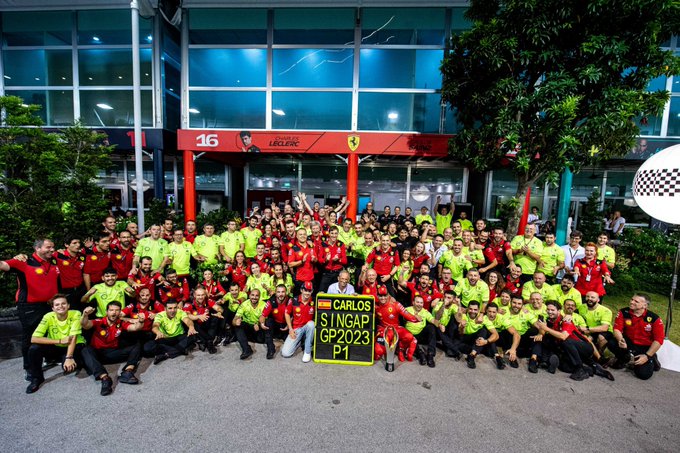This did indeed come into my head, I did think that this was a person or situation specific decision, I just didn't want to be the one to say itthe EDGE wrote: ↑19 Sep 2023, 12:11The rule is to do with 'Gaining a lasting advantage', If I am not mistaken, it has nothing specifically to do with overtaking off-track per se.mwillems wrote: ↑19 Sep 2023, 11:19As I've said, I'm not questioning this incident in isolation, it is easy to look at that and work out some rules because the FIA docs give you soo much leeway for the stewards. The issue is then comparing it to other examples where the decision runs totally contrary to this and the pass was allowed. Because in other overtakes I can't see an example where it has been so rigorously applied as here with situations that were more slam dunk. This overtake, whilst in isolation makes sense, doesn't make sense in the way these decisions are often made.PikeStance wrote: ↑19 Sep 2023, 10:22
He did not maintain control of the car by keeping it within the white lines. He then went off track and gained an advantage. Russel had the right to his line. he is not obligated to get out of his way simply because he is coming in fast. It was a high-risk move that didn't pan out for Hamilton.
We know he went off, the question is around what separates the moves and why is it that when others went off track on escape roads like when Piastri lost a place to Russell in spain and the pass was then made off track, not on, the was the pass allowed, but here he can clear the car and turn in and it is not. Both go off track, Hamilton has more substatially more done than Russel did. The decision around this move whilst it can be logicalised, does not align with previously applied logic and the decision rankles me.
If you have the right to be left a car's width by the person your overtaking, and they do not, and force you wide, then you can legitimately pass them off-track. I.e you didn't leave the track to gain an advantage, you had no choice but to leave the track
If I'm honest, I'm am surprised they told Lewis to give the place back, but not because I didn't think he should, just I didn't think the stewards would bother to.
I believe what I said originally would be their justification, had Lewis slowed sufficiently to stay on-track, Lando could/would have been able to get the position back, so Lewis was deemed to have gained an advantage
I bet a pound to a penny that had it been a RB or a Ferrari pulling of the Lewis move ,the stewards wouldn't have batted an eye-lid. It is a sad fact the stewarding is completely inconsistent and quite frankly hugely bias IMO. It comes from having local stewards at each event, which is a terrible idea that needs urgently addressing
I agree and understand the logic you gave to a degree, it is the application of it that looks quite new and quite specific to this incident or to this person, however you want to view it, in terms of how a pass is complete, because of the complexity of the manoeuvre and because of past decision. I do have a suspicion it is to do with either the person or what they wanted happening in the race hence Ham could overtake off the track later as overtaking and drama was needed. The application in the past and this year has let it stand for much simpler decisions though, which is what makes me feel it isn't down some very sensible ideas of when is a pass complete. I still have the feeling that it is not clear as to whether the pass on Lando was complete, but I don't think there is a clear answer to it I think that can be argued either way.
But the fact that the decision didn't go his way on something like that where with more slam dunk decisions in the past where the pass did stand... it's fishy.
Even if I don't like a driver, there's nothing more I dislike than when there is something fishy about the application of the rules, it really gets my goat. I do think there needs to be some clarity on how to define when a pass is complete.
But then you know it will have the caveat that it is just a guide and at the stewards discretion, allowing them
a) To make it up as they go if they want and
b) No real accountability



